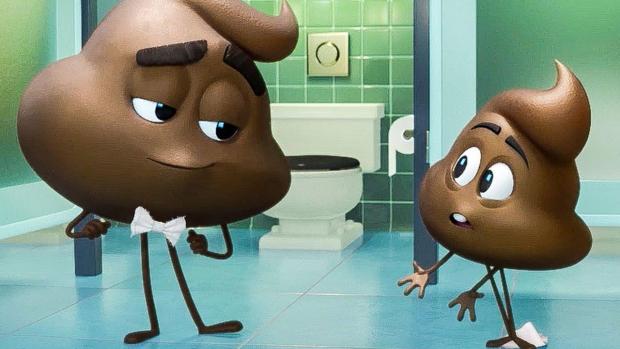Gone are those days when just a hoarding or television advertisement could influence a movie-goer. With people taking the film critics’ views seriously, rapid and incessant reactions pouring in on social media, it’s easier to gauge a film through its reception online.
This year has been a good year, especially for review aggregator website RottenTomatoes.com. It achieved the impossible — a 100 per cent rating as well as a zero per cent rating.
It began well with Jordan Peele’s terrific portrayal of a horror story on racism in his directorial Get Out. The horror movie deals with the topic of racism, where a simple meeting with the parents of the protagonist’s Caucasian girlfriend leads to something murkier.
Released in February this year, several critics lauded the film and it went on to do fairly well at the box-office, generating $ 252.4 million, the film’s budget was $4.5 million.
The film now has an approval rating of 99 per cent based on 280 reviews, with an average rating of 8.3/10 on Rotten Tomatoes. The 100 per cent rating clearly helped in the beginning.
On the other hand, The Emoji Movie, is making similar waves. Except, it began with a zero rating. The film takes place in Textopolis, a world inside a smartphone that’s inhabited by various emojis. There, an emoji named Gene (voiced by TJ Miller) is ashamed that he has multiple facial expressions while his colleagues only have one each, and he embarks on a quest to be like everyone else.
Released on July 28, the film received a zero rating and then managed to get an eight per cent rating based on 36 reviews. Right now, it has decreased again, showing a seven per cent rating based on 72 reviews, with an average rating of 2.4/10. In emoji terms, it’s a ?.
This spectacular failure has had studios fighting back and blaming Rotten Tomatoes. Sample this — a recent report by The Hollywood Reporter said that Sony stopped reviews from being published for a while and almost blamed Rotten Tomatoes and its influence on audience to salvage the film’s poor rating.
A movie like The Emoji Movie, bankrolled by Sony Pictures Animation, managed to draw a score lower than The Room (2003) — a film that is regarded as one of the worst films ever made — calls for a face-saving strategy, thus it’s hardly surprising watching Sony blame the not-so-innocuous Tomatometer. In fact, the report added that Hollywood studios have been commissioning their own studies to understand how much these ratings have on viewers. A few studies showed that movie-goers of 25 years of age and younger are mostly influenced by these ratings.
*****
To understand this theory better, Silverscreen asked a few cinema-goers around India what makes them choose a film at the theatres. Interestingly, very few point to Rotten Tomatoes and other review aggregating sites. Word-of-mouth tops the list, followed by the film’s trailer.
“I normally go to a movie based on friends’ recommendation. I do follow critics but I don’t always go by what they say. I did read The Guardian’s review for The Emoji Movie. Haven’t watched the film but I think they went a bit much into the abstract side after getting hopes from Inside Out,” says Vishnu Swaroop, a Chennai-based writer.
Karthik Keramalu, a short story writer and movie reviewer from Bengaluru, thinks the trailers do the trick. “Apart from professional reasons for watching a movie, what clicks for me is the trailer. If the trailer is able to put me in a new world, I’m sold. Reviews do help me in untwisting my opinions sometimes, but I don’t keep them in mind while my eyes are on the movie,” he says.
Mary P Radjou from Puducherry believes the hype around a film is fairly instrumental in choosing to watch a film. “I watched Lipstick Under My Burkha because of the hype. But apart from that and Star Wars, I mostly rely on word-of-mouth. I have never checked Rotten Tomatoes before choosing a movie to watch. Reviews, at least for me, have mostly been misleading (eg. Dunkirk, La La Land). So I mostly decide to watch a film based on what the people I know think of it. Or the trailer,” she says.
Ishvar Mohan, a PhD scholar from Guntur, believes he’s one of the few who checks out Rotten Tomatoes’ scores. “I look at the aggregation. I check out other sources, too, like movie-buff friends and sub-reddits,” he says.
Gokul Nair, a student from Kerala, thinks reviews do play a massive role when it comes to watching a film at the theatres. “If it’s a much-awaited movie, I go through several reviews just to ensure that it’s worth the time and money spent. A simple Google search will automatically give you the three ratings of Rotten Tomatoes, IMDB, and Metacritic which helps you make a spot decision. I do not, however, depend on user reviews from these websites. I last checked out the ratings of Alien Covenant and was disappointed with the ratings it received. I feel it gave a shot in the arm to the franchise and deserved better,” he asserts.
Recommended
When asked further about why one relies on word-of-mouth or expects the films to be *that* good, most of the movie-goers blame the price of the ticket considering how it varies from city to city in India and why it’s important to know if the money would be worth spending. Or the fact that a week of a lot of work must be redeemed with a good movie.
Trailers, too, play a crucial role in enticing audience to theatres. But that’s usually reserved for the first day, especially when the critics’ reviews and word-of-mouth does half the job. Silverscreen’s story on Cutting the Perfect Trailer from last year spoke of how a lot of thought goes into making the trailers, resulting it either being a hit or a miss.
But, like ComScore’s Paul Dergarabedian says, “The best way for studios to combat the ‘Rotten Tomatoes Effect’ is to make better movies, plain and simple.”
Feature Image: The Independent



